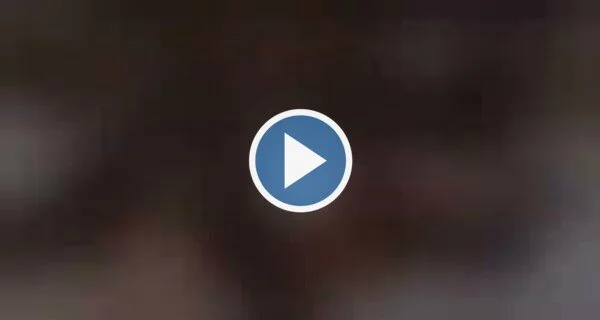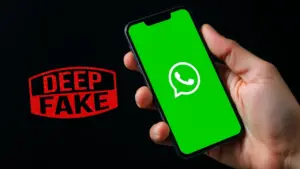
Tina’s Hey Pookie video goes viral
| Question | Answer |
|---|---|
| What is the “Tina’s Hey Pookie” video about? | It is a video that has spread virally on social media platforms, particularly TikTok, that includes the phrase “Hey Pookie.” |
The “Tina’s Hey Pookie” video has literally taken social media by storm, where the term “Hey Pookie” is trending on several platforms, especially TikTok. This paper tries to find out the origin and popularity of this particular phrase and which cultural identities have been tagged with the term “Pookie”.
Cell 1: Understanding the trend
viral video
| date | events |
|---|---|
| 2023-08-01 | The “Tina Kay Hey Pookie” video has become a trend on TikTok. |
The “Tina’s Hey Pookie” video is from a user on TikTok, johanalovesme_._, who is thanking another user, totallynottina, for a photo, and with the catchy phrase attached to it, it says, “Hey Pookie.” Now, that very basic but adorable video turned out to attract the interest of many TikTok users and spawned a wave of similar content.

“Hey Pookie” why?
It is very cute and light, and “Hi Pookie” soon went viral on TikTok. Being a term of affection with a playful twist in showing love or friendship, “Hi Pookie” flows easily with its catchiness and is easy to remember. It found fertile ground in the extremely short, creative video format provided by TikTok.
Cell 2: The cultural meaning of “puki”
Term of endearment
Why do you think this “Hey Pookie” phrase is so mainstream?|| — || It’s cute, it’s affectionate; just like when someone calls you “honey” or “sweetie.”
Pookie” has been a common expression of affection in the United States since the 1960s when someone refers to a loved one, typically a significant other, child, or even a very close friend. It’s a mix of endearment, familiarity, and playfulness.

Where did “Puki” come from?
| Who called whom “Pookie” first? |
|---|
| It is said to come from the Yiddish “puk”, meaning “cheek”, or possibly from the French “poulet”, meaning “chicken”. |
Although it is not known exactly where “Puki” actually came from, it is said to have either Yiddish or French roots. This brings with it the idea of cultural background, clearly establishing how many languages and cultures can influence today’s dialect.
Cell 3: The effect and use of “puki”
Celebrities and influencers
| Name | profession | Example |
|---|---|---|
| Jason Derulo | singer | “Hey Pookie, I’m so glad I found you.” |
| Zendaya | Actress | “Hey Pookie, what’s going on?” |
| Lil Nas | Rapper | Hey Pookie, let’s go get some ice cream.” |
It is in light of this that celebrities and influencers have joined in, fueling the “Hey Pookie” trend. The term is applied in multiple contexts across social media platforms by many singers, actors, and rappers, proving it to be versatile and effective for different audiences.

How to Use “Puki”
| tip | the explanation |
|---|---|
| Express affection | Use “puki” to express love and affection to a partner, friend, or relative. |
| get attention | “Hey Pookie” is a playful way to get someone’s attention. |
| Be Playful | This phrase adds play to whatever is going on, setting a light-hearted atmosphere. |
Keeping these tips in mind will help you use this phrase, “hey pookie,” to its fullest extent within the trend: show genuine affection, grab someone’s attention with it, or just be playful and add some humor to your conversation.
Cell 4: “Puki” in context.
Usage examples
| Example | Context |
|---|---|
| “I love you, Pookie!” | Showing your love and affection towards a dear person. |
| “Pookie, you’re so funny!” | Playful, cheerful and a close friend. |
| “Look at my Pookie!” | Boasting about a loved one, though in pride and affection. |
The word “pookie” is so versatile that it can be applied to many situations. Expressing the depth of affection or just being playful, showing love interest – “pookie” adds a certain flair to the exchange.

“Puki” in popular culture
| Year | Topic | Type |
|---|---|---|
| 1973 | paper Moon | Movies |
| 1982 Pookie Singing Song | ||
| 1995 Friday film |
In many cases, “Puki” has also influenced popular culture. The term has surfaced when considering films such as “Paper Moon” and songs such as Shalamar’s “Puki”. These usages further solidify the term’s status in contemporary slang and cultural contexts.
final thoughts
The “Tina’s Hey Pookie” video and the persistent trend of the “Hey Pookie” catch-phrase on TikTok have proven the culture of linguistic style on social media. It will be interesting in the near future to see how trends will shape our communications and online interactions.

“Hey Pookie” is more than a viral trend. It’s part of our evolving language and creates an available window of connection with others.
Optional call to action
Do you want to better understand viral trends and their culture? Follow our page for some highly thought-provoking articles, and don’t miss a thing!
Can you think of anything else on the topic of this viral trend or the impact of social media on language and culture in general? Please go ahead and ask a follow-up question or request more information!




